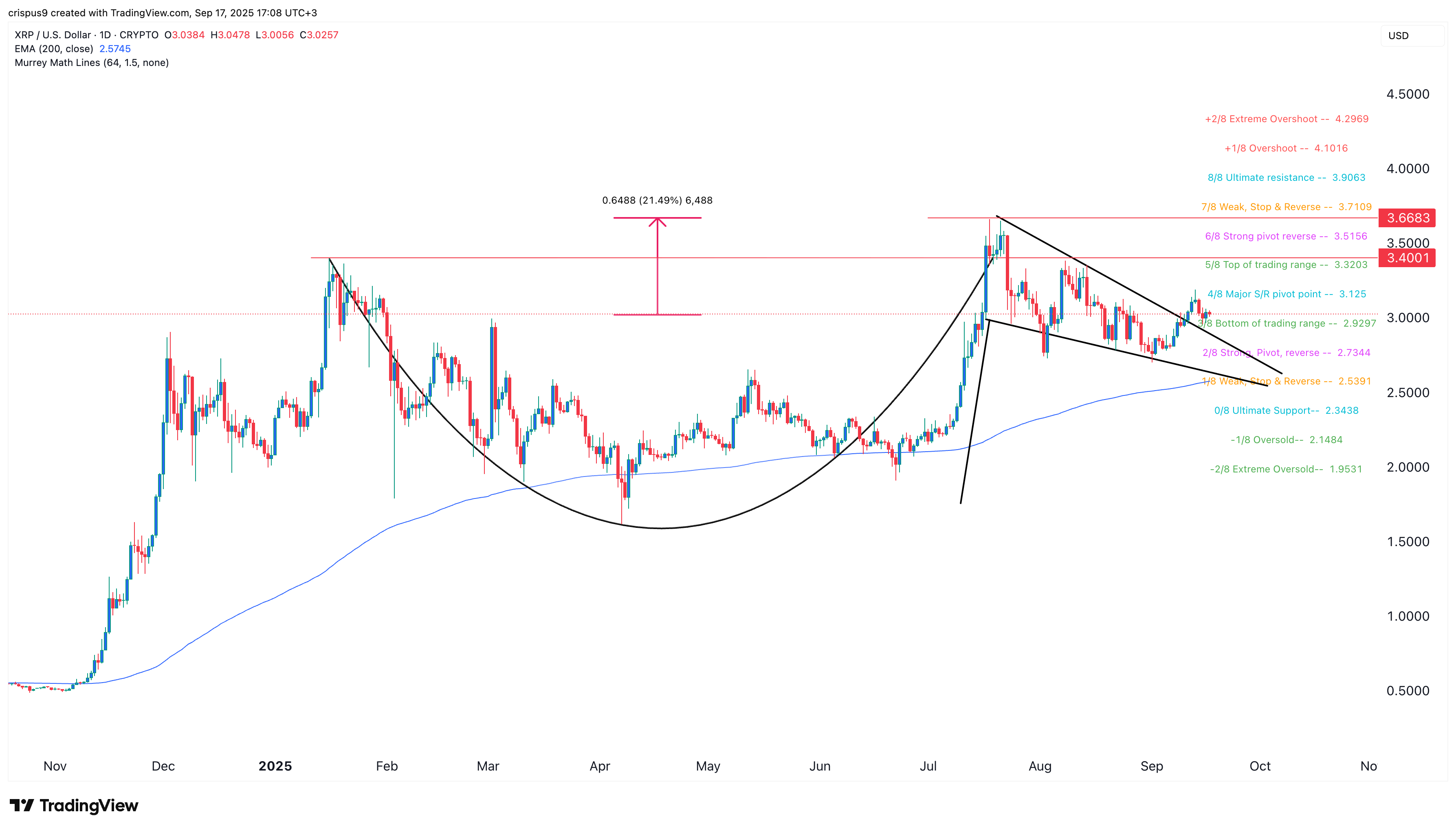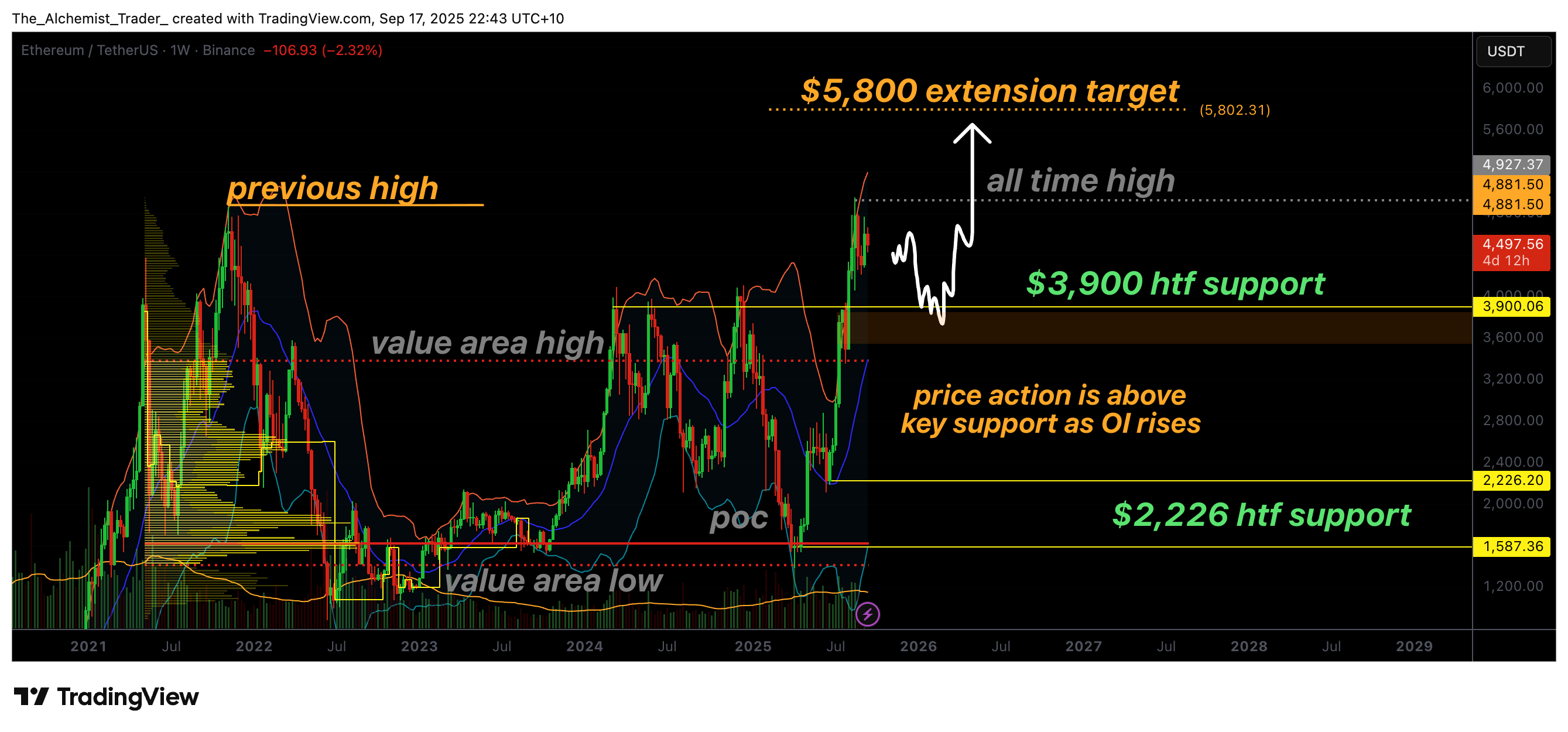Why Paul Atkins, Trump’s SEC chair pick, gives crypto hope

With Paul Atkins expected to take over as chair of the U.S. Securities and Exchange Commission (SEC), is this the regulatory lifeline crypto has been waiting for, or just another chapter of empty promises?
Goodbye, Gensler. Hello, Atkins
President-elect Donald Trump has nominated Atkins to lead the SEC. The announcement sparked optimism across financial circles—particularly within the crypto community.
A renowned regulator with extensive experience, Atkins has been selected to bring a fresh perspective to the SEC at a time when innovation and regulation are locked in a critical tug-of-war.
The announcement alone pushed Bitcoin (BTC) past the $100,000 mark for the first time, with prices climbing to $103,550 as of Dec. 5.
For the crypto industry, his appointment feels like a long-awaited shift. Under outgoing SEC Chair Gary Gensler, the agency’s relationship with digital asset firms has been fraught with tension, characterized by lawsuits and aggressive enforcement.
Atkins, however, is viewed as a potential catalyst for change—someone who might clarify regulatory frameworks while promoting growth in the sector.
But who is Atkins, really? What does his track record reveal about his stance on crypto and financial regulation? And why are both traditional and digital markets reacting so strongly to his appointment?
Let’s dive into the background of the man who could redefine the SEC.
A closer look
Atkins may not be a household name, but in the world of finance and regulation, his reputation speaks volumes.
Born in Lillington, North Carolina, and raised in Tampa, Florida, Atkins built a strong academic foundation early on. He graduated with honors from Wofford College in 1980, earning a Bachelor of Arts and induction into Phi Beta Kappa.
In 1983, he obtained his law degree from Vanderbilt University, where he served as Senior Student Writing Editor for the prestigious Vanderbilt Law Review.
Atkins launched his professional career at Davis Polk & Wardwell, one of the most esteemed law firms in the world. He specialized in corporate transactions, M&A, and securities offerings, honing his expertise in high-stakes financial matters.
His career soon took on an international dimension with over two years in the firm’s Paris office, where he also earned credentials as a French legal advisor.
Atkins first joined the SEC in the early 1990s, working under former chairman Richard C. Breeden and Arthur Levitt. During this period, he concentrated on enhancing corporate governance and improving communication between shareholders and companies.
In 2002, when Atkins returned to the SEC as a commissioner, he found himself in the hot seat during a period of corporate scandals involving giants like Enron and WorldCom.
Amid the chaos, he advocated for stricter fraud enforcement, while cautioning against overly punitive measures that could stifle legitimate business practices.
After leaving the SEC in 2008, Atkins founded Patomak Global Partners, a consulting firm advising financial institutions, including fintech innovators and crypto startups. Through Patomak, he solidified his reputation as a leader in financial policy, particularly as blockchain and digital assets became trendy topics.
His contributions even extended to testifying before Congress on the need for streamlined regulations that support crypto innovation while safeguarding markets from malfeasance.
He has also served as a co-chair of the Token Alliance since 2017, an industry-led initiative by the Chamber of Digital Commerce focused on promoting the responsible growth of tokenized networks and applications.
Will Atkins hit the reset button?
Over the past few years, regulatory uncertainty has been the industry’s biggest roadblock. Under Gensler, the SEC took a hardline approach, treating most cryptos as securities and bringing lawsuits against major players like Coinbase and Ripple (XRP).
Against this backdrop, Atkins brings a collaborative and clear approach to crypto policy, drawing on years of experience as co-chair of the Token Alliance and as an advisor to the Chamber of Digital Commerce. These roles have given him firsthand insight into the challenges facing both crypto startups and established firms.
One of his key contributions has been advocating for clearer definitions of what constitutes a security versus a commodity—something the crypto world has long been asking for.
But what does this really mean for the industry? For starters, unlike Gensler, who leaned heavily on enforcement actions—filing several dozen lawsuits against crypto firms during his term—Atkins’ approach could be far different.
His tenure at the SEC from 2002 to 2008 is a good indicator. During that time, he pushed for policies that lowered barriers for small and medium-sized enterprises to access capital markets.
If he applies the same principles to crypto, the U.S. could become a global hub for blockchain innovation, instead of losing talent and investments to countries like Dubai, Singapore, and Switzerland.
Another key area where Atkins could make a difference is decentralization. Gensler’s SEC often treated decentralized finance projects with suspicion, framing them as unregulated securities platforms.
Atkins, on the other hand, has spoken in favor of technologies like blockchain that democratize access to financial systems. This doesn’t mean he’s likely to give DeFi a free pass, but his history suggests he’ll look for ways to support innovation while addressing fraud and market manipulation.
However, there’s also reason to approach this shift with caution. During his previous SEC tenure, he opposed hefty penalties on corporations involved in fraud, arguing that such fines ultimately hurt shareholders. While this approach appeals to businesses, consumer advocates worry it might not do enough to protect retail investors.
As the SEC enters this new era, the U.S. has an opportunity to reclaim its position as a leader in blockchain technology and digital finance.
Crypto bulls react
Atkins’ nomination as the next SEC chair has sparked a series of reactions from key figures across the crypto and financial sectors.
While the crypto community seems largely optimistic, the deep-woven sentiments reveal deeper frustrations with the outgoing administration’s approach and hope for a more balanced future.
Coinbase’s Chief Legal Officer, Paul Grewal, set the tone, calling Atkins’ appointment “sorely needed and cannot come a day too soon.” For firms like Coinbase, entangled in lawsuits and fines, Atkins’ arrival offers a much-needed breather.
Ripple CEO Brad Garlinghouse doubled down on this optimism, describing Atkins as an “outstanding choice” while addressing the stakes involved.
“It’s time to swiftly and definitively end the prohibition era on crypto,” he stated, hinting at the billions lost in legal fees and the delays in critical projects under Gensler’s leadership.
Hester Peirce, often dubbed “Crypto Mom” for her pro-crypto stance at the SEC, also shared her excitement. “Having worked for him during his last stint at the agency, I cannot think of a better person for the job.”
Cathie Wood, CEO of ARK Invest and a vocal advocate for crypto, likened Atkins’ nomination to a broader defense of digital property rights.
“Incoming SEC Chairman Paul Atkins will free digital assets from Gary Gensler’s chokehold and protect private property rights in the digital world,” she tweeted.
Cameron Winklevoss, co-founder of Gemini, also chimed in with a common critique of the SEC under Gensler: “The SEC is in dire need of a reset. Instead of protecting investors and fostering innovation, it ‘protected’ investors from the likes of bitcoin ETFs and stifled innovation.”
Summing it all up, the crypto industry isn’t looking for a free pass—it’s looking for fairness, clarity, and a recognition of its potential to drive economic growth.
Under Atkins, many hope for an SEC that encourages innovation while protecting investors in a balanced, constructive way.




